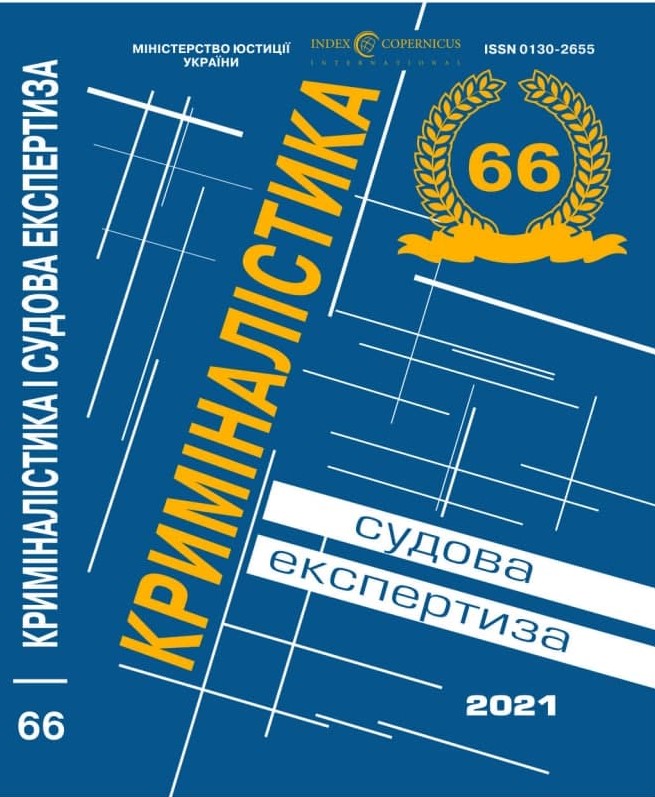
DOI: https://doi.org/10.33994/kndise.2021.66.96
V. M. Chysnikov
The article is devoted to the main stages of life and activity of Professor Artur Martinovich Kanger (1875-1960) – pharmacist, forensic chemist, criminologist and teacher. The main attention is paid to his work as an assistant to the head of the Cabinet of Scientific and Forensic Expertise under the Prosecutor of the Odesa Court Chamber. Working in this institution for eight years (1914-1922), he held the position of assistant manager of the Cabinet, and in recent years headed the Forensic Department. He has hundreds of chemical expertise, including studies of explosives, gunpowder, poisons, etc. In addition, chemical methods were used in the study of handwriting and ink research, forgery of documents made by mechanically.
In particular, during 1922, Professor A. M. Kanger and his closest assistant laboratory assistant Shettle I. H. conducted 215 chemical examinations. In most cases, chemical analysis methods were used in the research. However, in addition to this method, others were used: microscopic analysis, physical methods (for example, determination of specific gravity) and photographic methods. It is noteworthy that a significant part fell on the study of objects that were material evidence in cases of counterfeiting paper banknotes.
Along with work at the Odesa Cabinet of Scientific and Forensic Expertise, Professor A. M. Kanger was a rector of Odesa Institute of Chemical and Pharmaceuticals (1921-1922) and at the same time headed the Department of Pharmaceutical and Forensic Chemistry. At the beginning of 1923 Arthur Martynovych Kanger together with his wife and young son went to Riga. Working in scientific and educational institutions, he made a significant contribution to the formation of the state system of scientific and forensic exspertise in Latvia and contributed to the development of criminalistics in the German Democratic Republic (GDR).
Key words: А. М. Kanger, Odesa Cabinet of Scientific and Forensic Expertise, Odesa Institute of Chemical and Pharmaceuticals, Latvian Scientific Institute of Forensics, University of Berlin, History of Forensics and Forensic Examination.










